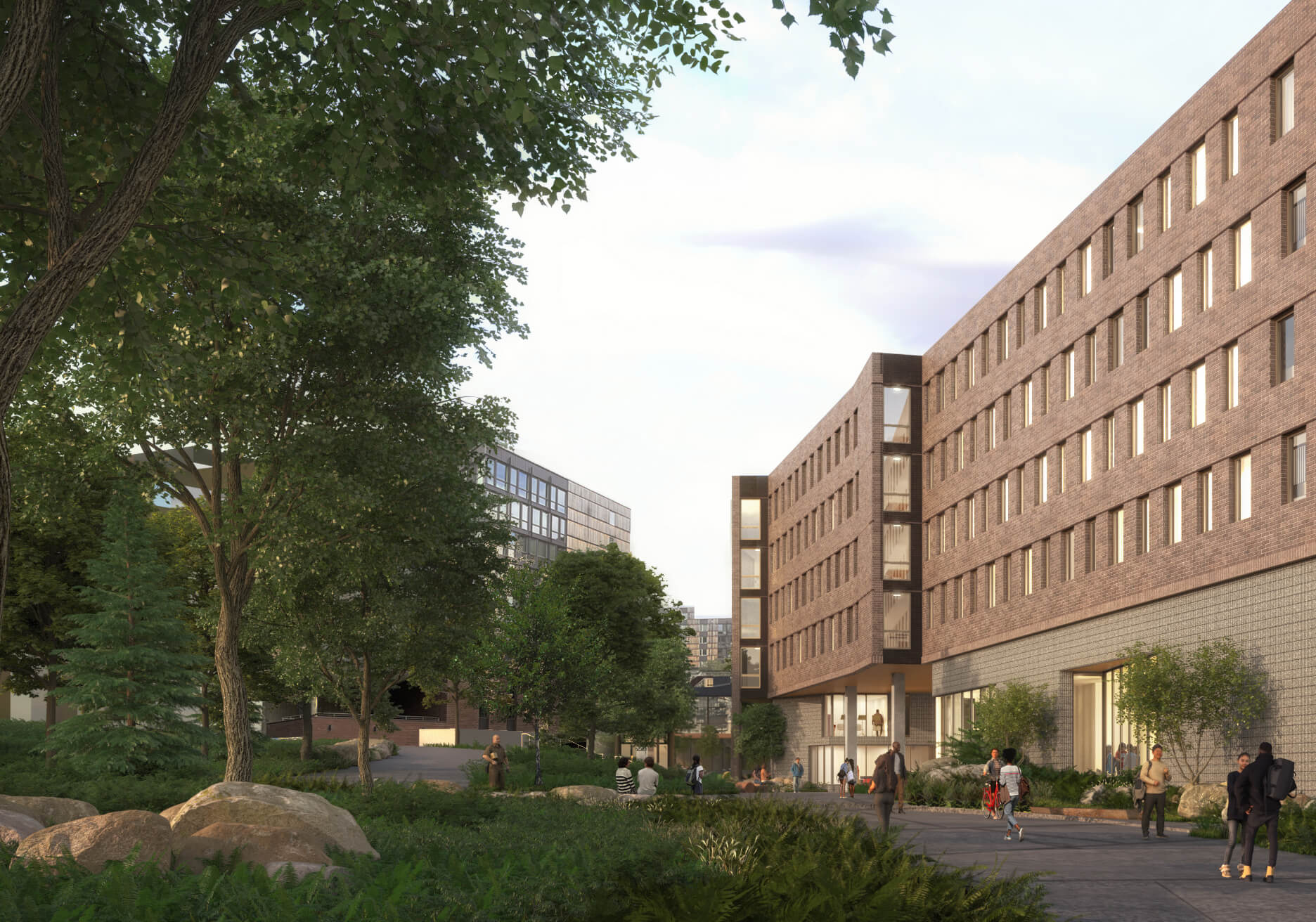On a hilly site at the University of Washington with a 45-foot change in grade, TenBerke and Mahlum Architects will deliver an all-electric residence and wellness center. In Seattle, Haggett Hall is one of several campus buildings by TenBerke underway around the country, including ventures at Yale University and Smith College.
Haggett Hall will encompass 230,000 square feet. It will house 800 students and mark an important step toward developing University of Washington’s north campus, completed by the Olmsted Brothers in 1909.
From east to west, the site TenBerke and Mahlum Architects is working with has a steep grade change. The architects fully embraced the site’s topography: Much of the U-shaped, 9-story structure is nestled within the sloped site. An attractive, bespoke stair will connect the upper level of one volume with the landscaped courtyard midway up the slope.

The residential complex by TenBerke and Mahlum Architects will be oriented north-south to maximize natural light access. As indicated in renderings, the bottom stories of Haggett Hall are expressed differently than the upper floors. A ribbed concrete block base supports the facade clad in narrow, elongated brick above. The base’s rough surface is meant to evoke Seattle’s mountainous landscape.
From dormitory windows, first- and second-year students will enjoy amazing views of Lake Washington and the North Cascades. Serpentine pathways will meander throughout the 1.5-acre site, helping activate University of Washington’s north campus.

Anne Schopf, a senior principal at Mahlum Architects, said in a statement that Haggett Hall’s design embodies the principles of biophilia. “With access to nature at its core and framed by the two wings, residents are continually connected to natural systems,” Schopf said. “Whether walking through the forest courtyard, looking out their window into the arboreal layer, or enjoying distant views of the Cascade Range, students receive restorative energy that enhances their well-being.”

“This project expands our understanding of sustainability. It will achieve high standards in energy consumption and carbon reduction, to be sure,” added Maitland Jones, a senior principal at TenBerke. “Moreover, by emphasizing community and well‑being, by so thoroughly integrating a dramatic and vigorous site and GGN’s landscape design, and by carefully coordinating an embedded wellness program, it should be understood to be socially sustainable as well.”
The building is slated for completion in 2027 and is targeting LEED Gold.

